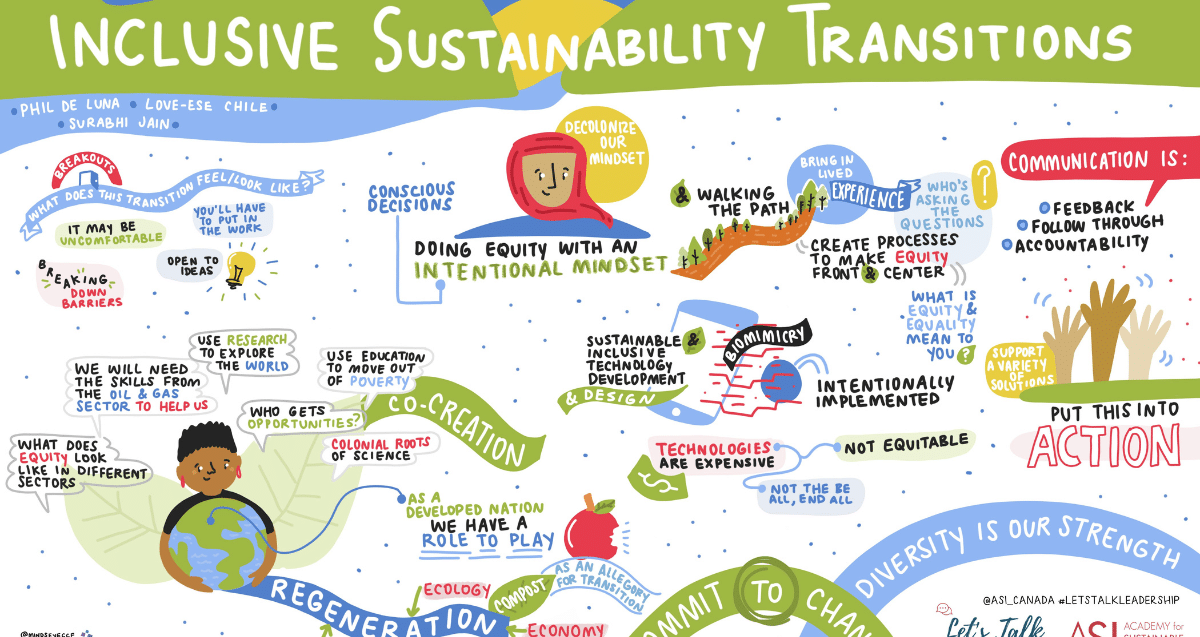Audio Graphic Recording
ASI had the pleasure of hosting Phil de Luna, Surabhi Jain, and Dr. Love-Ese Chile for the third installment of our Let’s Talk Leadership series. Throughout our conversation, a central theme emerged: the significance of intentionality in the context of equitable and inclusive climate action and systems change. As a group, we gathered to engage in a candid discussion about the leadership practices necessary to address the interconnected nature of climate change and social justice. When nurturing new leadership competencies we agreed that we must do so in a way that is highly intentional to ensure no one gets left behind. This involved posing difficult questions about who is given the opportunity to participate and whether the voices and questions of the intended beneficiaries of climate solutions are being heard.
If you missed attending, we wanted to reiterate that the Let’s Talk Leadership events are not recorded to encourage open and honest conversations. In lieu of a recording, we had a graphic recorder put together an illustration capturing some of our collective thoughts. We’ve compiled a few of our key takeaways from the event below:
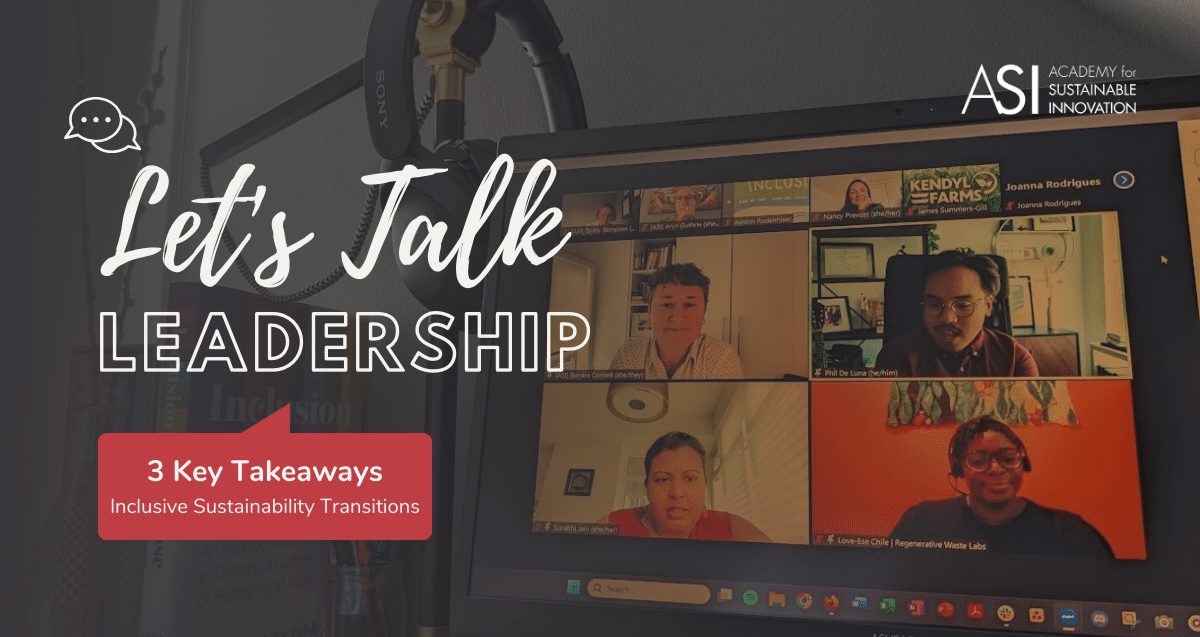
Climate Tech: One-Size-Doesn’t-Fit-All
Climate tech solutions play an important role in our transition to a low-carbon, socially-inclusive future. These solutions can help us reduce emissions, adapt to a changing climate, and achieve global sustainability goals. However, Phil de Luna emphasized that such technology developments need to be rooted in equity and inclusivity. Technology solutions should not inadvertently exacerbate existing social inequalities. Instead, technology should be designed and implemented to ensure that marginalized and vulnerable communities benefit from its development.
Phil went on to say that we need to find our synergies in technology rather than trying to find a one-size-fits-all-approach because climate change affects individuals and communities differently. This can include a number of factors including different socioeconomic considerations. For example, implementing rooftop solar panels or investing in a personal electric vehicle is often only accessible to those in more privileged financial situations, while people in lower-income communities may not have the means to afford the upfront costs. This lack of access can perpetuate reliance on fossil fuels and can expose marginalized and vulnerable communities to disproportionate environmental and health risks. We could all agree that sustainable climate solutions should not be a privilege accessible only to a select few but a right afforded to all.
Equality vs Equity: Designing with Intention
When talking about equity in climate action work, we spoke about equality and equity, and how important it is to recognize their differences so we can begin to design systems that place equity front and centre. Equality, refers to treating everyone in the same manner, irrespective of their circumstances or needs. Equity, however, recognizes that people have different starting points and requirements, and seeks to provide individuals with what they need to attain fairness and justice.
Surabhi Jain brought to light that even with the best intentions, the hardest part about walking the equity path is first recognizing that we are all biased. This bias can inadvertently creep into system design and decision-making processes unconsciously – it’s human nature to do so. If we aren’t intentionally planning with equity we jeopardize the very goals we set out to achieve. Programs, practices, and systems that do not prioritize equity run the risk of perpetuating existing disparities and leaving behind those they were intended to benefit. This not only undermines the effectiveness of our efforts but also amplifies the very issues we aim to address.
Looking to Nature for Co-Creation
Dr. Love-Ese Chile shared a beautiful allegory of compost for transition to help us understand the concept of growth and connection to nature. Just as composting involves the decomposition of organic matter into nutrient-rich soil, our lives go through periods of change and transformation where we must sift through our experiences and knowledge, retaining what is valuable while letting go of what no longer serves us. Drawing from the concept of biomimicry, she went on to say we must be able to understand how we exist in systems and communities, together. By working together, we can co-create solutions and commit to change. This collaborative approach allows us to derive inspiration from nature’s principles, processes, and systems, ultimately enabling us to build more sustainable and harmonious societies.
Diversity is our strength – in our people, perspectives, and approaches to solving our greatest challenges. By being intentional in our approach to equity and inclusion, we can not only enhance the resilience and adaptability of our climate action efforts but also contribute to a more just and sustainable future.
About the Speakers

Phil De Luna (he/him)
Chief Carbon Scientist + Head of Engineering, Deep Sky
Phil De Luna was most recently an Expert, Sustainability at McKinsey & Company where he advises corporations, governments, and non-profits on decarbonization to enable sustainable inclusive growth. He is a Governor General Gold Medal winning scientist, ranked in the top 0.1% in the world in his field, a mentor at Creative Destruction Lab, and chair of Carbon Management Canada. Prior to McKinsey, Phil was the youngest-ever Director at the National Research Council where he built and led a $57M R&D program developing disruptive technologies to decarbonize Canada. He was on the founding team of CERT Technologies, a carbontech startup and finalist in the $20M Carbon XPRIZE. He is a Member of the College of the Royal Society of Canada, an adjunct Professor of Materials Science & Engineering at the University of Toronto, a former Member of Parliament candidate, a Globe & Mail Top 50 Changemaker, and a Forbes Top 30 Under 30.

Surabhi Jain (she/her)
Executive Director, Toronto’s Workforce Funder Collaborative
Surabhi is the Executive Director of the Toronto Workforce Funders Collaborative and the co-founder of a women’s leadership allyship program – Women In Power. She a leader in the social impact sector with nearly 20 years of experience in designing, implementing, and managing adult education and training programs. She has worked closely with Fortune 500 companies to help them change racially biased hiring practices. At the same time, she has engaged in capacity building for the non-profit sector to change systems.
Surabhi’s lived experiences have afforded her a unique perspective on transformative systems change. She brings experiences from the workplace, from her travels, and from her childhood that have shaped her understanding of community, leadership, and human development.
Surabhi has a Bachelor of Science in Economics from Purdue University, Indiana and a Master of Arts in Sustainable International Development from the Heller School of Social Policy and Management at Brandeis University, Massachusetts.
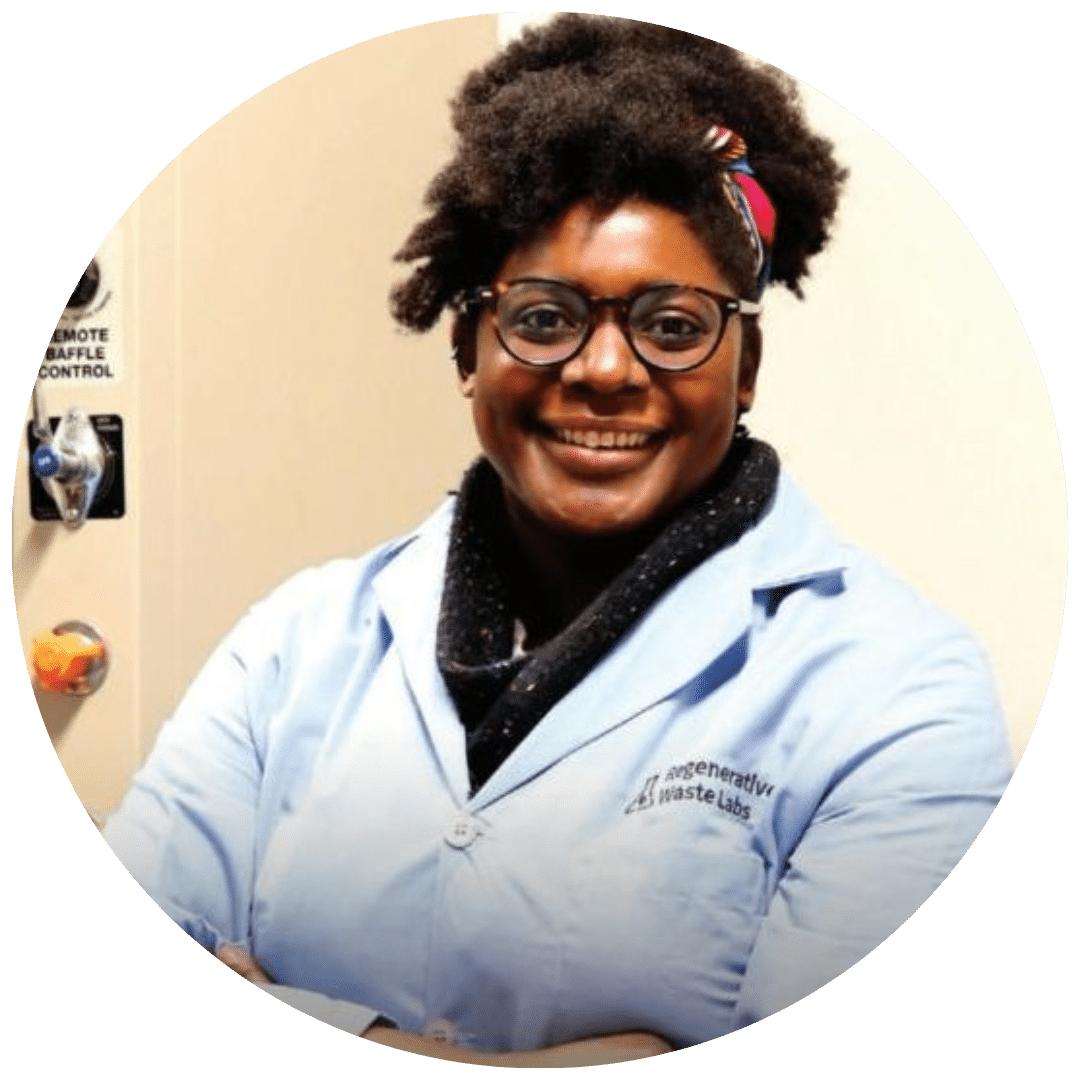
Dr. Love-Ese Chile (she/her)
Managing Owner, Regenerative Waste Labs
Dr. Love-Ese Chile is Managing Owner of circular waste research and consulting firm Regenerative Waste Labs. She is a sustainable material researcher who works at the intersection of circular bioproducts, circular economy policy and sustainable waste recovery. She believes in creating new opportunities and initiatives that add value to our communities while promoting sustainability. As someone from diverse backgrounds, personally and professionally, Love-Ese is driven to connect individuals who may not typically work together and create innovative products and services that can lead our communities into a greener and more equitable future.
ASI’s Members Network is Live!
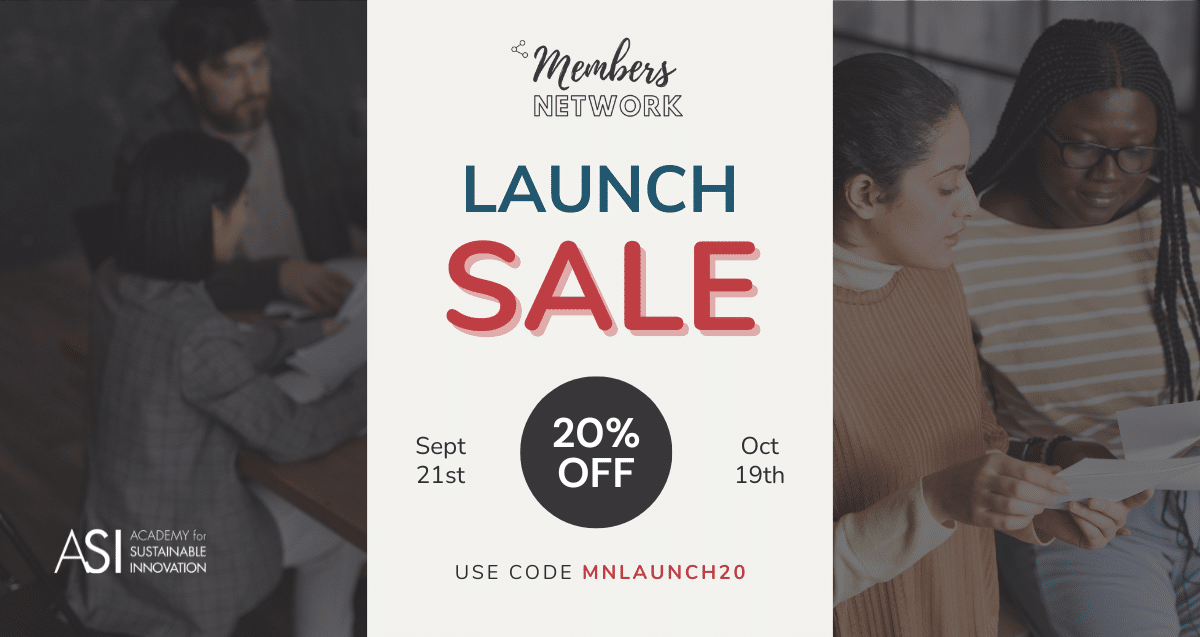
If you’d like to join in on more conversations like this please consider joining ASI’s Members Network for Sustainability Professionals! We’ve designed this network to bring together sustainability professionals from across Canada to enhance our leadership skills and inspire others to make the necessary organizational changes. Our primary motivation is to create an accessible space to make meaningful connections, share resources, and learn from one another.
Save 20% off our pay-what-you-can pricing scale until October 19, 2023 using the code MNLAUNCH20

